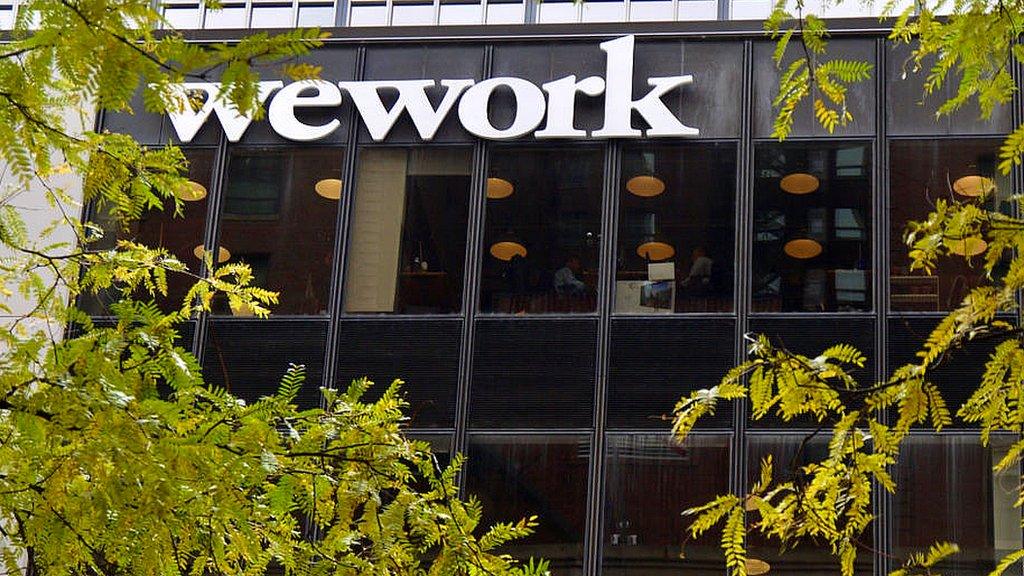WeWork sees stock market listing 'by the end of the year'
- Published

The hotly-anticipated stock market listing of WeWork's parent firm may be delayed until the end of the year with investor interest appearing to falter.
We Company was due to begin marketing the office sharing firm to investors this week, with the flotation set to take place as early as this month.
But concerns have mounted over what firm, once valued at $47bn (£37.8bn), is worth.
On Monday, We Company said it planned to complete the listing by December.
"The We Company is looking forward to our upcoming [initial public offering], which we expect to be completed by the end of the year. We want to thank all of our employees, members and partners for their ongoing commitment," the company said in a statement.
The update followed several reports, citing unnamed sources, that the listing could be delayed until at least October.
The timing of the flotation has been in doubt as investor interest in the company has appeared to wane.
Last week, Reuters reported that the We Company could seek a valuation in its initial public offering (IPO) of between $10bn and $12bn, a sharp discount to the mooted $47bn price tag suggested in January.
In the past few months, We Company has faced concerns over its corporate governance standards, as well as the sustainability of its business model, which relies on a mix of long-term liabilities and short-term revenue.
WeWork has 61 locations in the UK, with 51 of those in London. Worldwide, it has more than 800 locations in 125 cities.
How can a company be valued at billions, but not make any profit?
Critics say WeWork's model could leave it vulnerable during an economic downturn.
The company rents office space for the long term, subletting that space to firms and individuals on more flexible lease terms. That could leave it on the hook for lease payments even if tenants grow scarce.
WeWork has also faced questions about its complicated financial ties to founder chief executive, Adam Neumann, who would retain voting control of the company.
Earlier this month, Mr Neumann returned $5.9m worth of stock to the firm, which he had controversially received in exchange for his trademark of "We".
Concerns about slowing global growth could also contribute to a difficult ride on financial markets, as seen in other high-profile offerings this year, such as Uber.
However, that rapid expansion has been expensive. WeWork lost about $1.6bn last year, despite revenue nearly doubling.
- Published10 September 2019

- Published14 August 2019

- Published20 June 2019

- Published13 September 2019

- Published5 May 2019
